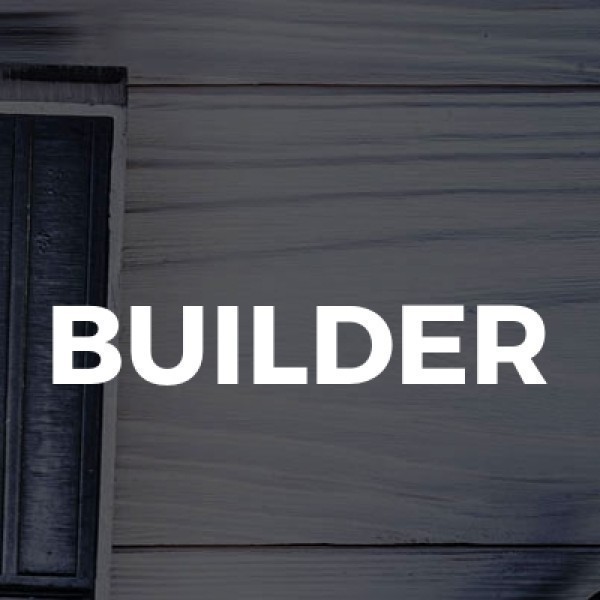Extension Builders in Bristol
Welcome to EMKA Building Contractors Ltd, your premier choice for builders and renovation exp... read more »
P31 Carpentry Ltd is a premier carpentry and building company located in Hillfields, dedicated to serving the bustling c... read more »
Welcome to Search And Find Property Services Ltd, your go-to experts for all building and renovation needs in Easton and the greater Bris... read more »
Welcome to Valuto Builders, your trusted partner for all your building needs in Fishponds and across Bristol. As experienced builders, we... read more »
Welcome to ATP Construction Southwest Ltd, your premier choice for expert construction services in the bustling city of Bristol. As a tru... read more »
Welcome to Severn Property Solutions Ltd, your trusted partner for all building and renovation needs in the heart of Bristolread more »
Welcome to Greenslade & Sons Limited, your go-to experts for all your building needs in Hartcliffe and the greater Bristol area. As a wel... read more »
Wheelers Building Solutions is your go-to expert for all building needs in Lower Knowle and the wider Bristol area. Spec... read more »
SJE Design & Build Ltd is a distinguished family-run business nestled in the bustling area of Eastville, proudly serving... read more »
Welcome to Construct, Carpentry & Build, your trusted partner for all your home improvement needs in Stockwood and across Bristol. As lea... read more »
Welcome to AMLs Complete Solutions, your trusted partner for exceptional home improvement services in Filwood Park and the vibrant city o... read more »
Evolve Building And Landscaping, nestled in the picturesque town of Knowle, is your trusted partner for all tradespeople... read more »
Great Meadow Construction: Premier Extension... read more »
Welcome to S Bracey General Building Ltd, your truste... read more »
Welcome to CMT Carpentry Ltd, your go-to experts for... read more »
Welcome to Multitrades Building Services LTD, your go... read more »
AdvancedBuildConcepts: Premier Extension Buil... read more »
ARW Building Services Ltd, a reputab... read more »
AMG Construction (Bristol) is your g... read more »
Welcome to RJS Builders, your go-to experts for all b... read more »
Search Extension Builders in Bristol by town
Understanding the Role of Extension Builders in Bristol
When it comes to enhancing your home, extension builders in Bristol play a pivotal role. These professionals are skilled in expanding living spaces, adding value, and improving the functionality of your home. Whether you're looking to add a new room, expand your kitchen, or create a home office, extension builders can turn your vision into reality. Let's delve into the world of extension builders and explore how they can transform your home.
The Importance of Choosing the Right Extension Builder
Choosing the right extension builder is crucial for the success of your project. A skilled builder ensures that your extension is not only aesthetically pleasing but also structurally sound. They bring expertise, experience, and a keen eye for detail to the table, ensuring that every aspect of the build meets your expectations. In Bristol, where architectural styles vary widely, finding a builder who understands local aesthetics and regulations is essential.
Factors to Consider When Selecting an Extension Builder
- Experience and Expertise: Look for builders with a proven track record in similar projects.
- Reputation: Check reviews and ask for references to gauge the builder's reliability and quality of work.
- Communication Skills: A good builder should be able to communicate effectively and keep you informed throughout the project.
- Understanding of Local Regulations: Ensure the builder is familiar with Bristol's building codes and regulations.
- Budget and Pricing: Get detailed quotes and ensure there are no hidden costs.
Types of Home Extensions
Home extensions come in various forms, each serving different purposes and offering unique benefits. Understanding the types of extensions can help you decide which one suits your needs best.
Single-Storey Extensions
Single-storey extensions are a popular choice for homeowners looking to expand their ground floor space. They can be used to enlarge kitchens, create open-plan living areas, or add a new room. These extensions are generally more straightforward and less costly than multi-storey builds.
Double-Storey Extensions
Double-storey extensions provide additional space on both the ground and first floors. They are ideal for growing families needing extra bedrooms or bathrooms. While more complex and expensive than single-storey extensions, they offer significant space and value increases.
Wrap-Around Extensions
Wrap-around extensions combine side and rear extensions to create a large, versatile space. They are perfect for those wanting to maximise their living area without compromising on garden space. These extensions can dramatically change the layout and flow of a home.
Loft Conversions
Loft conversions are an excellent way to utilise unused attic space. They can be transformed into bedrooms, offices, or playrooms, adding both space and value to your home. Loft conversions often require less structural work than other types of extensions.
Planning Permission and Building Regulations
Before embarking on an extension project, it's essential to understand the planning permission and building regulations involved. In Bristol, like elsewhere in the UK, certain rules must be followed to ensure your extension is legal and safe.
When is Planning Permission Required?
Planning permission is typically required for larger extensions or those that significantly alter the appearance of your home. However, many smaller extensions fall under 'permitted development rights,' meaning they don't require formal permission. It's crucial to check with the local council to determine what's needed for your project.
Understanding Building Regulations
Building regulations ensure that any construction work meets safety and energy efficiency standards. These regulations cover aspects such as structural integrity, fire safety, and insulation. Your extension builder should be well-versed in these requirements and ensure compliance throughout the build.
Cost Considerations for Home Extensions
The cost of a home extension can vary widely depending on factors such as size, complexity, and materials used. It's important to have a clear budget in mind and understand the potential costs involved.
Factors Influencing Extension Costs
- Size and Scale: Larger extensions naturally cost more due to increased materials and labour.
- Design Complexity: Unique designs or features can add to the overall cost.
- Materials: The choice of materials, from basic to high-end, will impact the budget.
- Location: Costs can vary based on the location within Bristol and accessibility of the site.
- Professional Fees: Architect, surveyor, and planning fees should be factored into the budget.
Maximising Value with Home Extensions
Home extensions not only provide additional space but can also significantly increase the value of your property. By choosing the right type of extension and ensuring high-quality workmanship, you can maximise the return on your investment.
Adding Value Through Design
Thoughtful design can enhance both the functionality and aesthetic appeal of your extension. Consider features such as natural lighting, open-plan layouts, and energy-efficient solutions to add value and appeal to potential buyers.
Quality Workmanship and Materials
Investing in quality workmanship and materials ensures that your extension stands the test of time. A well-built extension not only adds immediate value but also reduces the need for costly repairs or renovations in the future.
Working with Architects and Designers
Collaborating with architects and designers can help bring your vision to life. These professionals can provide valuable insights and creative solutions to maximise the potential of your extension.
The Role of Architects in Extension Projects
Architects play a crucial role in the planning and design stages of an extension project. They can help create detailed plans, navigate planning permissions, and ensure that the design meets your needs and budget.
Choosing the Right Designer
When selecting a designer, consider their experience, style, and ability to understand your vision. A good designer will work closely with you to create a space that reflects your personality and enhances your lifestyle.
Common Challenges in Home Extensions
While home extensions offer numerous benefits, they can also present challenges. Being aware of potential issues can help you prepare and mitigate any problems that arise during the project.
Dealing with Unexpected Delays
Delays can occur due to weather, supply chain issues, or unforeseen structural problems. Having a contingency plan and maintaining open communication with your builder can help manage these challenges.
Managing Budget Overruns
Budget overruns are a common concern in extension projects. To avoid this, ensure you have a clear budget, monitor expenses closely, and allow for a contingency fund to cover unexpected costs.
Environmental Considerations in Home Extensions
With growing awareness of environmental issues, many homeowners are seeking sustainable solutions for their extensions. Incorporating eco-friendly practices can reduce the environmental impact and enhance the energy efficiency of your home.
Eco-Friendly Building Materials
Consider using sustainable materials such as reclaimed wood, recycled metal, or eco-friendly insulation. These materials not only reduce environmental impact but can also add unique character to your extension.
Energy-Efficient Design
Incorporating energy-efficient features such as solar panels, energy-efficient windows, and proper insulation can reduce energy consumption and lower utility bills. These features are also attractive to environmentally-conscious buyers.
Frequently Asked Questions
What is the average cost of a home extension in Bristol?
The cost can vary widely depending on the size and complexity of the project, but on average, it ranges from £20,000 to £50,000.
Do I need planning permission for a small extension?
Many small extensions fall under permitted development rights and do not require planning permission, but it's best to check with the local council.
How long does it take to complete a home extension?
The timeline can vary, but most extensions take between three to six months from planning to completion.
Can I live in my home during the extension work?
In most cases, yes, but it depends on the scale of the project and the level of disruption you're comfortable with.
What should I look for in an extension builder?
Look for experience, a good reputation, clear communication, and an understanding of local regulations.
How can I ensure my extension is environmentally friendly?
Use sustainable materials, incorporate energy-efficient designs, and consider renewable energy sources like solar panels.
In conclusion, extension builders in Bristol offer a wealth of expertise and creativity to help you transform your home. By understanding the process, choosing the right professionals, and considering factors like cost, design, and sustainability, you can create a space that enhances your lifestyle and adds value to your property. Whether you're expanding for a growing family or simply seeking more space, a well-planned extension can make all the difference.


















